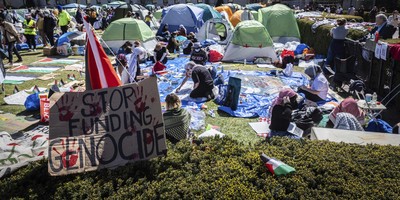Imagine waking up to the news that a Quaker county sheriff is denying concealed carry permits to citizens because of his religious objection to violence; or, a Muslim DMV supervisor in Dearborn, Michigan has ordered his staff to refuse to issue driver’s licenses to women out of a religious objection to women behind the wheel. These are among the realities that await should we make Kim Davis, the embattled County Clerk from Rowan County, Kentucky, an archetype for “religious freedom” in America.
In 1802, Thomas Jefferson replied to a letter from the Danbury Baptist Association of Connecticut in which he outlined a concept for the First Amendment’s application as it relates to religion. According to Jefferson, the Amendment creates a “wall of separation between Church & State,” to which “the legitimate powers of government reach actions only, & not opinions.” While Jefferson’s concept of a wall separating the Church and State has been used in a modern context by the Left to justify its radical purge of any and all religious artifacts from the public sector -- particularly those of Christianity – Jefferson rather was simply warning about the power of government, compelled by a dominant sect of religion, to corrupt and oppress religious liberty of all worshipers.
As an elected government official and public employee, Davis took an oath to uphold the law, and cannot properly use her power as an elected official to deny marriage licenses to couples found by the Supreme Court of the United States to be entitled to receive those licenses. This is not a question of whether or not we agree with that Supreme Court ruling; it most definitely is a question of whether we are – as Chief Justice John Marshall noted in his seminal, 1803 opinion in Marbury v. Madison – a “nation of laws, not of men.”
Recommended
To permit a public official to pick and choose the laws they decide to honor based on their personal religious views – regardless of whether we agree with those views -- would open the floodgates for any government official, from local police chief or tax assessor, to the President of the United States, to make access to essential government services or basic civil rights contingent not on the Constitution, but subservient to an unwritten code of personal beliefs. One need only look to the Obama Administration to see how such a government would operate, when laws and the Constitution are subject to the personal whims of whoever is wielding the levers of power at any particular time.
This is where the controversy swirling around Davis is doing the most damage. Rather than discussing factors at the heart of the controversy -- such as the overreach of the Supreme Court in Obergefell v. Hodges, or the shortsightedness of the Kentucky legislature in protecting the conscience of those under its purview with special accommodations similar to what has been created in North Carolina -- the debate once again has oversimplified a complex and fundamentally important issue into two divisive camps. For many well-intentioned conservatives on the right, the Davis controversy has turned “religious freedom” into the right of Christian government employees to disregard a law they find unconscionable; meanwhile the Left is shouting their tired refrain that a claim of religious freedom is a Trojan horse for discrimination against gays.
Both arguments miss the mark widely, and further endanger an already fragile notion of “religious liberty” in America.
The virulent reaction of the Left to this controversy, and laws such as Indiana’s Religious Freedom Restoration Act, leaves little doubt about the Left’s “respect” for religious freedom, and highlight the need protect it from further erosion. Yet, as the Davis controversy also illustrates, protecting religious freedom is not as black and white as the media and the political rhetoric make it out to be. It requires a far more thoughtful approach to articulating its fundamental importance in our society than rushing to make every perceived injustice the focal point of such a debate.
Using the wrong examples to make our case for religious freedom only further ingrains the disrespect for religious freedom and the rule of law so desperately needed in the public and the private sectors; and encourages use of the “Wall-of-Separation” phrase as a bludgeon against religion, rather than a protector of it.
It is regrettable that Kim Davis was jailed, and as former San Francisco Mayor Gavin Newsom’s lawless “gay marriage” protest shows, clearly the Left does not hold itself to the same standards as it does with Davis. However, what is happening to Davis is not about the sincerity of her religious beliefs, or even the morality of gay marriage. Placing her on a pedestal will likely come back to haunt her supporters.
And perhaps those who find a government for which they work so morally repugnant as does Kim Davis, would better serve the public they have sworn to serve, from outside rather than inside.























Join the conversation as a VIP Member